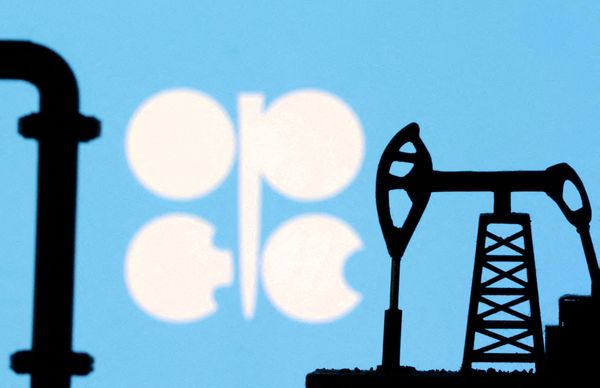TOKYO, June 4 — Oil prices edged lower in early Asian trade on Wednesday, weighed down by a loosening supply-demand balance following increasing OPEC+ output and lingering concerns over the global economic outlook due to tariff tensions.
Brent crude futures dipped five cents, or 0.1 per cent, to US$65.58 a barrel by 0040 GMT while U.S. West Texas Intermediate crude was at US$63.32 a barrel, down nine cents, or 0.1 per cent.
Both benchmarks climbed about two per cent on Tuesday to a two-week high, supported by worries over supply disruptions from Canadian wildfires and expectations that Iran will reject a United States (US) nuclear deal proposal that is key to easing sanctions on the major oil producer.
"Despite fears over Canadian supply and stalled Iran-US nuclear talks, oil markets are struggling to extend gains," said NLI Research Institute senior economist Tsuyoshi Ueno, adding that OPEC+ production increases were capping the upside.
He said hopes for progress in US-China trade talks were overshadowed by profit-taking, as investors remained cautious over the broader economic fallout from tariffs.
US President Donald Trump and Chinese leader Xi Jinping will likely speak this week, said White House press secretary Karoline Leavitt on Monday, days after Trump accused China of violating an agreement to roll back tariffs and trade restrictions.
As the Trump administration presses US trading partners to provide their best offers by Wednesday, the protracted negotiations and shifting deadlines have led economists to scale back their growth forecasts.
On Tuesday, the Organisation for Economic Co-operation and Development (OECD) cut its global growth forecast as the fallout from Trump's trade war takes a bigger toll on the US economy.
Meanwhile, scores of wildfires have swept across Canada since the start of May, forcing thousands of evacuations and disrupting crude oil production in the country.
US crude stocks fell by 3.3 million barrels in the week ended May 30, market sources said, citing American Petroleum Institute figures on Tuesday. Gasoline inventories rose by 4.7 million barrels, and distillate stocks rose by about 760,000 barrels.
A Reuters poll of nine analysts estimated an average draw of one million barrels in crude stocks.
Official inventory data from the US Energy Information Administration is due on Wednesday.
— Reuters




